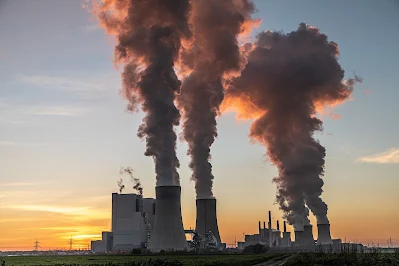Carbon trading
Innovative strategies to
reduce greenhouse gas emissions are now more important than ever as climate
change poses a growing threat to our world. A potent technique to address this
problem is carbon trading, often known as emissions trading or cap-and-trade. a
market-based strategy that has gained popularity all around the world. But what
is carbon trading exactly, and how does it operate? We will analyze the factors
that make carbon trading a potent weapon in the fight against climate change in
this blog post and debunk some common misconceptions about it. Let's explore
the intriguing realm of carbon trading now.
What exactly is carbon
trading?
Carbon trading is a
market-based strategy intended to lower emissions of carbon dioxide (CO2) and
other greenhouse gases. It functions on the theory of capping the overall
emissions and letting organizations to purchase and sell permits to emit these
pollutants. The main goal is to provide financial incentives for companies and
organizations to reduce their emissions and spend money on greener practices and
technologies.
How Does Trading in
Carbon Work?
Putting Emission Caps:
In order to start carbon trading, a regulatory agency, frequently a government
or an international organization, establishes a cap on the overall permitted
emissions within a given timeframe. Typically, this cap is chosen in accordance
with scientific research and environmental aims.
Emission permits: commonly
referred to as carbon credits, are distributed among organizations subject to
emission laws under this system, which also involves the allocation of emission
permits. The ability to emit a specific amount of greenhouse gases is granted
by these permits. The cap on emissions is reflected in the total number of
permits.
Trading on the Carbon
Market: On the carbon market, entities can purchase and sell
these emission permits. An entity may sell excess permits to those whose
emissions are in excess of their limit if it reduces its emissions below the
number of permits allotted to it. As a result, businesses have a financial incentive
to cut their emissions and invest in green technologies.
Agreements and Implementation:
Governments or regulatory organizations oversee and uphold compliance with
emission caps. Penalties for violating the restrictions are severe and can
provide considerable incentive for organizations to adhere to them.
What are the benefits of
trading carbon?
By lowering greenhouse
gas emissions, carbon trading contributes to the battle against climate change.
It promotes the adoption of greener technologies and practices by rewarding
emissions reductions.
Finding the most
affordable solutions to cut emissions is made possible through carbon trading
for businesses. Businesses have flexibility in their strategy since they can
choose between directly cutting emissions and buying licenses.
By establishing a market
for clean technologies, it stimulates innovation. In order to cut emissions and
maintain their competitiveness in the carbon market, businesses are motivated
to engage in research and development.
Global collaboration in
combating climate change can be facilitated through international carbon trading.
It encourages a sense of collective responsibility by enabling nations to
cooperate and set shared emissions reduction targets.
What are
the challenges and obstacles to carbon trading?
Because carbon prices
might fluctuate, long-term investments in programs to reduce emissions may be
discouraged.
Some organizations might
take advantage of weaknesses or commit fraud, which would undermine the
efficiency of carbon trading.
Critics claim that carbon
trading can result in environmental injustices since it may unfairly affect
underprivileged communities as a result of emissions-intensive industries.
In conclusion, in the
fight against climate change, carbon trading has become a crucial tool. It
provides a market-based solution to a global issue by providing financial
incentives for carbon reduction. Even if it has some difficulties, it can spur
innovation, cut emissions, and foster international cooperation, making it an
important tool for the transition to a greener and more sustainable society.
Carbon trading is going to be essential in accomplishing these goals as
governments and businesses make more commitments to being carbon neutral and
lowering emissions.



